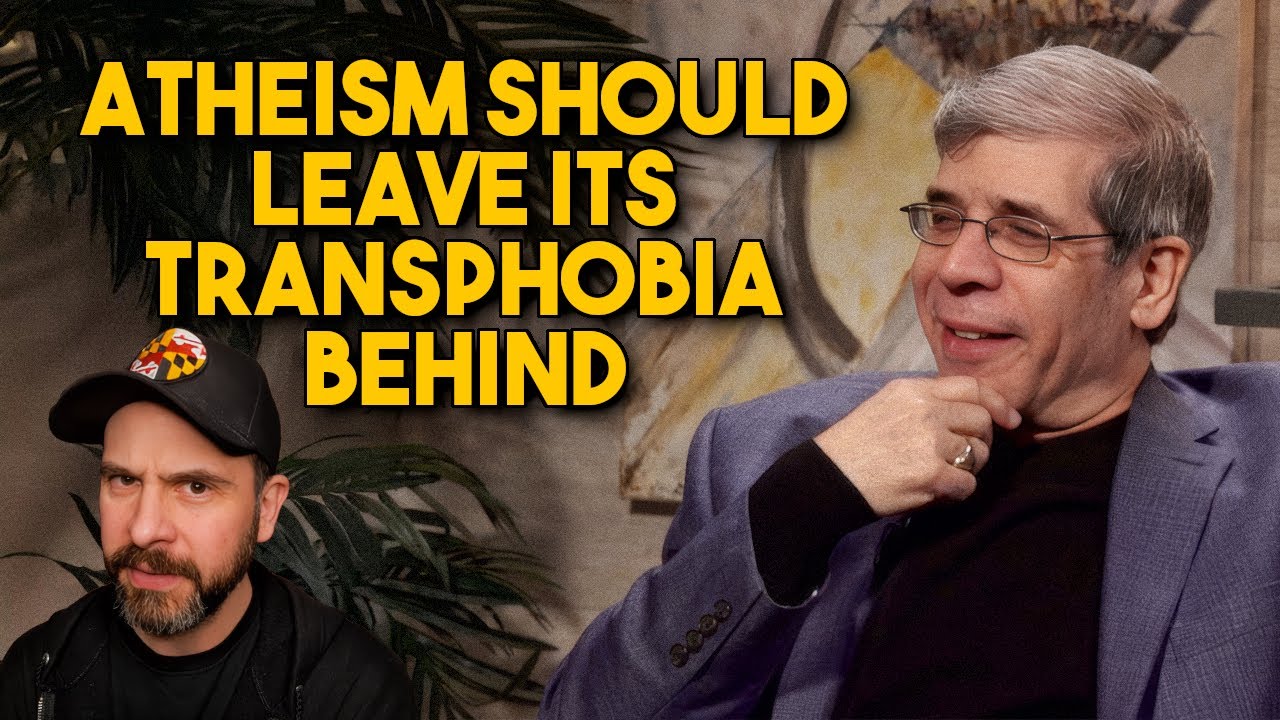Not that there’s anything good about this, but hearing that both Steven Pinker and Richard Dawkins “resigned” from whatever honorary positions they had with the FFRF rather made my heart sink.
I was a linguistics student for a time, and Pinker’s books always had a sociolinguistic aspect to them, but I never saw transphobia. It was admittedly a while back, so it really wasn’t yet settling into the national consciousness.
I also admired Dawkins’ writing style; again, I saw nothing transphobic.
So for both of these guys to be like “nope, you should have totally kept a piece up that says transwomen should have fewer rights and options” is, maybe, the final insult of 2024.



If the fact that a text incites violence is enough to disregard it, let us disregard all liberal law, as they incite “violence”(Death penalties). Violence has been a part of humanity’s function so far, and I do not necessarily believe we can extricate ourselves from it with any ease. My anarchist heart fundamentally believes in a truly peaceful society, but even in a society based on rehabilitative justice, we need to have systems capable of handling individuals unwilling to go through the process of rehabilitation. In practice, this typically means some form of separation from some aspects of society, which make no mistake is violence, except it is justified in this case.
With this said, I again will contend religious groupthink and religious epistemology are likely causal factors to religious violence. However, as the null hypothesis specifies, until provided evidence of a correlation between statistic A and statistic B, there is no correlation between statistic A and statistic B. Thus, I ask you to provide peer-reviewed paper of a large sample size indicating a causation, or at least, a strong correlation(Which I have not yet been able to find), and I will believe your claim.
Are you not stating that religious people will do whatever feels religious, and not necessarily what is exactly written in the texts? If you are stating this, I agree, which is why I believe terrorist crime is not necessarily caused by what is in the religious texts.
You need to become more aware of terrorist groups - Hell, even the Taliban itself kinda disproves your point with https://www.usip.org/publications/2022/05/how-talibans-hijab-decree-defies-islam.
Here’s another paper on ISIS doing something similar - https://d1wqtxts1xzle7.cloudfront.net/106120729/document_1_-libre.pdf?1696213268=&response-content-disposition=inline%3B+filename%3DLINGUISTIC_ANALYSIS_OF_ISIS_MISCONTEXTUA.pdf&Expires=1735843958&Signature=SiwxMwvcrLE4~RaDo82GqRsi0EmR8XGBOSEGpJyoEtymqzmEk~ERp6zt8Y68yt6sJtQ74dFrD2nAe27eyprea-NTrDFd16Eb0tpvmJdoRBDhXIKjDwF-mRlw9lp9dxxKbE1fd~dYMy-UMIgX6eurDRCxEIaZ11tvDq~73CWn5yfrgTUsWwznWNpBzhy~kgkt7fRiKPoWfS0HnP35M~aMIli-VoZNgWq~rbWiFfCrmZeEsbWbw-Deo~OXvzME6MlbYuAxC~UsFAniaub7kOS01eP8skGmjFW9xETvVrEkgKXjNv8Hr~sZl7v46csPIGk-68HJXw9MrQb2fsMyBnvzZw__&Key-Pair-Id=APKAJLOHF5GGSLRBV4ZA
Again, I do not contend that the book is non-existent factor, I actually contend that the book is a minor factor as opposed to the goals of the organization. The goals may correlate with the book somewhat, but they will necessarily depart from the book as most religions typically tend to advocate for peace.
Additionally, if you say they do X or Y as per the book, can I get some systematic evidence, and not just vibes? If the religious text says a particular action is unethical or unnecessary, and religious fundamentalists do it anyway, is it not the case that they don’t care about the religious text?
Also, ignorance is a problem, but not in the way you imply. Ignorance of knowledge is not nearly as much of a problem as ignorance of epistemology. To give you an example, there are people who are religious who “believe” in vaccines, and people who are irreligious who don’t, despite the fact the vaccines are well demonstrated to be effective. The problem here is that the people who don’t “believe” in vaccines do not have an accurate truth seeking algorithm. This is also the case for people who believe in religion without looking for evidence of the claims of that religion. An accurate truth seeking algorithm would ask what evidence do we have of any claim, and what counter-evidence do we have for the same claim, and make a decision on the basis of evidence. This is what is missing in all sorts of conspiracy theorists, and also, religious people. Even if a religion is 100% correct about a claim, religious people would be mistaken in believing it without looking at evidence of the claim. The case is similar for ethics as well.
This was not the point of my comparison at all - The point of my comparison was simply to show that there does not exist a strong correlation between religious attitudes and terrorism. Something like 70-80% of the US is religious (Between 234440500 and 267932000 people if we take US population as 334915000) - https://en.wikipedia.org/wiki/Irreligion_in_the_United_States.
This is as opposed to 99.95%(277,534,000) in Indonesia - https://en.wikipedia.org/wiki/Religion_in_Indonesia. Which means we should see a reduction in terrorism compared to Indonesia, as opposed to an increase. But the fact that the number of terrorist incidents is a toss up, indicates that the correlation between religion and terrorism is weak at best.